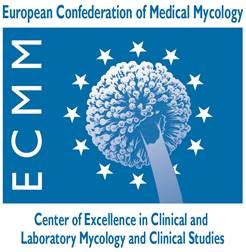The Microbiology Department is part of the Laboratory Medicine (LabMed) Directorate. The department is primarily involved in the diagnosis of infectious diseases and provides a routine diagnostic service to St James’s Hospital and to general practitioners (GPs) in the catchment area.
There are three main sections to the Microbiology Laboratory.
- Diagnostic Bacteriology
- Serology
- Molecular Microbiology
The Microbiology Laboratory houses three national reference laboratories: National Gonococcal Reference Laboratory, National MRSA Reference Laboratory and the Irish Mycobacteria Reference Laboratory
In addition to this the Microbiology Department has been designated as a Centre of Excellence: Diamond Status, by the European Confederation of Medical Mycology for the Mycology Clinical and Laboratory Diagnostic service provided to users.

For information in regard to the test repertoire offered, specimen requirements for ordering, collection and transport, frequency of testing, turnaround times, information on storage of samples in the event of a delay in transport to the laboratory and relevant notes specific to each test, please refer to:
The Labmed User Guide: http://search.stjames.ie/Labmed/
If the test is not available on Healtlink/Healthlink downtime please use:
GP Request Form Microbiology
If the test is not available on EPR/EPR downtime please use:
SJH request form Microbiology
For critical phone limits for Microbiology St James’s Hospital please see : LF MICRO 0456 Critical Phone Limits Microbiology St James's Hospital
In the case where chain of evidence is required for a given specimen please ensure to complete relevant sections of LF-MICRO-0475 Laboratory Chain of Evidence Form.
Additional Tests Requests
Please contact the Microbiology Department if additional testing is required. Samples are stored for different lengths of time, so direct communication with Microbiology is required.
-
- Culture of a range of biological material (e.g. swabs, urine, blood, sputum) from human sources.
- Isolation and identification of potentially pathogenic bacteria and fungi.
- Determination of antimicrobial susceptibilities.
Note the definitions we use when we categorise organisms as susceptible, intermediate or resistant are defined below
- S - Susceptible, standard dosing regimen: A microorganism is categorised as "Susceptible, standard dosing regimen", when there is a high likelihood of therapeutic success using a standard dosing regimen of the agent.
- I – Susceptible, increased exposure*: A microorganism is categorised as "Susceptible, Increased exposure*" when there is a high likelihood of therapeutic success because exposure to the agent is increased by adjusting the dosing regimen or by its concentration at the site of infection.
- R - Resistant: A microorganism is categorised as "Resistant" when there is a high likelihood of therapeutic failure even when there is increased exposure.
*Exposure is a function of how the mode of administration, dose, dosing interval, infusion time, as well as distribution and excretion of the antimicrobial agent will influence the infecting organism at the site of infection.
(Ref: The European Committee on Antimicrobial Susceptibility Testing - EUCAST https://www.eucast.org/newsiandr/)
-
Involves the diagnostic identification of antibodies in serum. Such antibodies are typically formed in response to an infection (against a given microorganism). Serological tests for antibodies to HIV, Hepatitis B & C and Syphilis are, among others, available in the Clinical Microbiology department.
-
Employs a highly sensitive technique known as Polymerase chain reaction (PCR) to amplify (replicate many times) a specific target DNA sequence in order to detect a particular pathogen. Molecular Microbiology, like Serology, is employed when the suspected microbial agent either cannot be isolated in culture by any known method or can be isolated in culture only with great difficulty (e.g. Chlamydia).
Genotypic results may not detect all potential pathogens in a clinical sample. A negative result does not exclude the possibility of infection and should not be used as the sole basis for diagnosis, treatment, or other management decisions.
-
Please contact the Microbiology Medical Scientist on-call who is available via the switchboard. (01) 4103000
Note that the Microbiology Medical Scientist must be bleeped for urgent specimens to be processed out of hours, users should not telephone the laboratory as telephones are not staffed out of routine hours
Monday to Friday 8pm to 8am
Saturday 1pm to 12am
Sunday 24 hours
Clinical Advice
Advice regarding diagnosis and treatment of infection is available at all times. For out of hours advice including infection control advice, please contact the on-call consultant microbiologist via switchboard (01) 4103000 or on-call Medical Scientist.
-
-
Referral Process
-
Referral Process
-
Referral Process
-
-
Laboratory Office: (01) 4162966 & (01) 4162967
Laboratory Aspects
Chief Medical Scientist: Antoinette Power ampower@stjames.ie (01) 4162986, (01) 4162966
Chief Medical Scientist (Virology): Yvonne Lynagh (01) 4162969, (01) 4162056
Infection Control
Jija Varghese JVarghese@stjames.ie (01) 4103379
Contact Details
Monday to Friday 8am to 8pm
Saturday 8am to 1pm